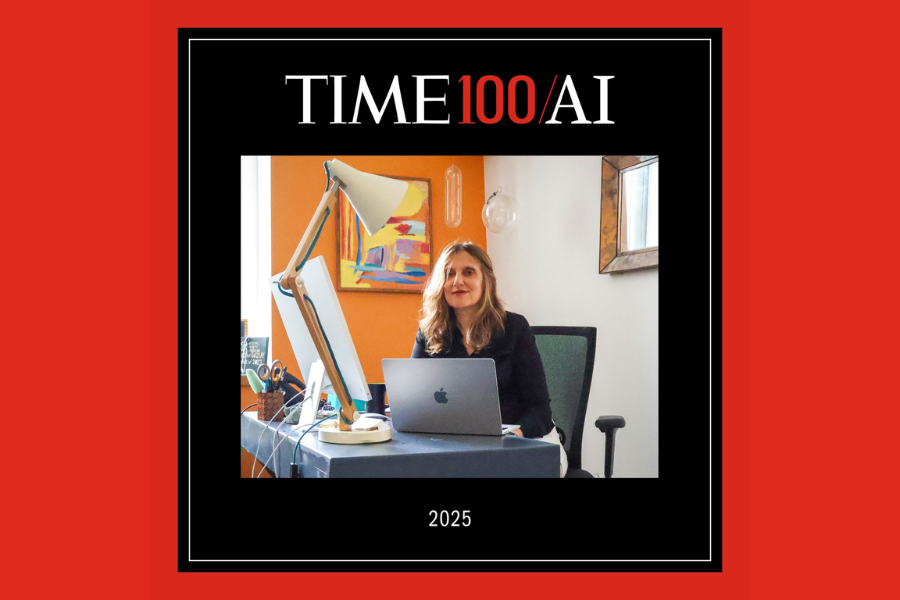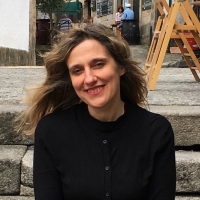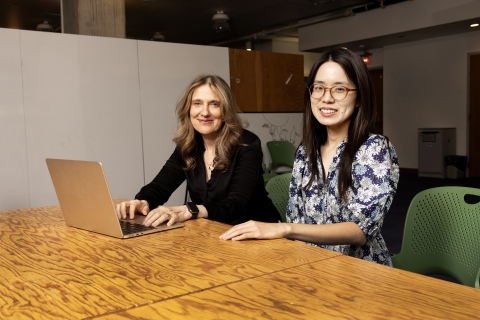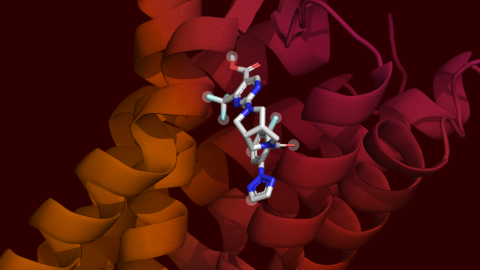Regina Barzilay, School of Engineering Distinguished Professor for AI and Health at MIT, CSAIL Principal Investigator, and Jameel Clinic AI Faculty Lead, has been named to this year’s TIME100 AI list for developing machine learning models that can predict diseases, such as breast cancer and the flu.
Barzilay is among “100 leaders, innovators, shapers, and thinkers who have a stake in the future of AI,” according to TIME. The magazine notes in their announcement that she’s “in the business of patient future-telling.” Her clairvoyance comes in the form of creating AI systems that can predict when and how a disease will arise, as well as the ways it may behave.
Barzilay has melded the predictive capabilities of machine learning with chemistry and oncology. She works on machine learning algorithms for modeling molecular properties in the context of drug design, with the goal of elucidating disease biochemistry and accelerating the development of new therapeutics. In the field of clinical AI, she focuses on algorithms for early cancer diagnostics.
She has designed AI tools that can assess a patient's risk of developing cancer up to six years in advance, including “MIRAI” for breast cancer and “Sybil” for lung cancer. To facilitate clinical use of these tools, Barzilay founded the Jameel Clinic Hospital Network, which includes 65 hospitals in 24 countries. Her MIRAI system has already been used to read 1.7 million mammograms within these health facilities — and based on that success, she’s working on tools that support the safe deployment of AI tools in healthcare systems.
Another impactful project that mixes the strengths of AI prediction with health care: the “VaxSeer” AI system. It predicts dominant flu strains months ahead and identifies the most protective vaccine candidates. It uses deep learning models that were trained on viral sequences and lab test results to potentially make vaccine selection more accurate.
Barzilay has also helped discover potent antibiotics that can effectively kill many drug-resistant bacteria. She’s recently focused on modeling molecular interactions, protein engineering, and developing therapeutics resistant to resistance. One of her group’s latest innovations is “Boltz-2,” a groundbreaking AI system that jointly predicts molecular structure and binding affinity with near-physics accuracy 1000x faster than existing methods.
Barzilay is a member of the National Academy of Engineering (NAE), the National Academy of Medicine (NAM), and the American Academy of Arts and Sciences (AAAS). She has earned the Frances E. Allen Medal, the MacArthur Fellowship, MIT’s Jamieson Award for excellence in teaching, and the Association for the Advancement of Artificial Intelligence’s (AAAI) $1 million Squirrel AI Award for Artificial Intelligence for the Benefit of Humanity. Barzilay is a fellow of AAAI, ACL, and AIMBE.



